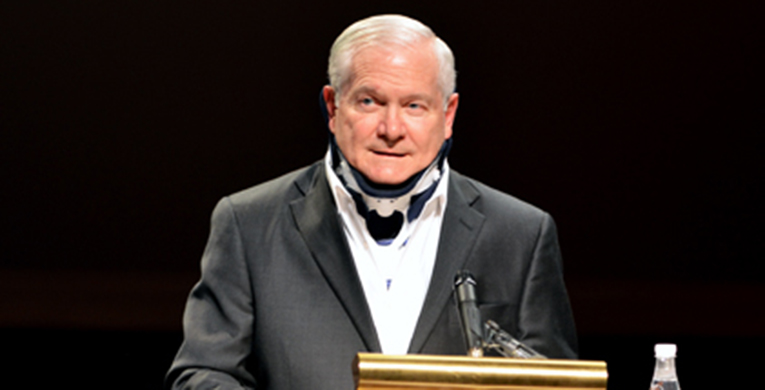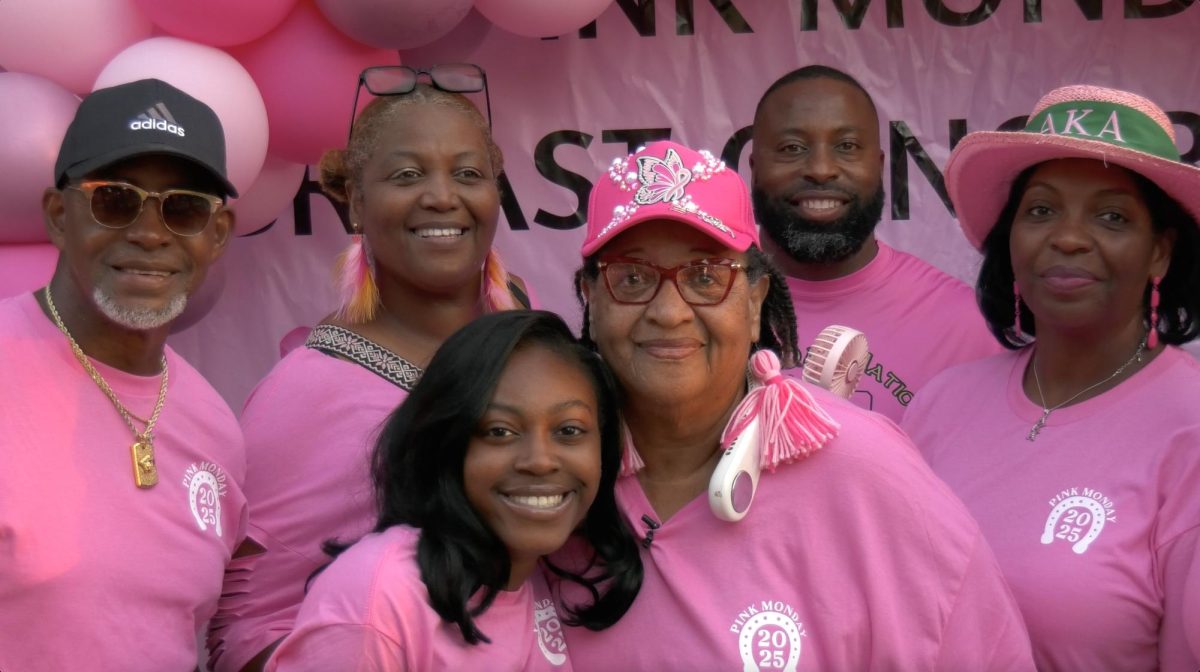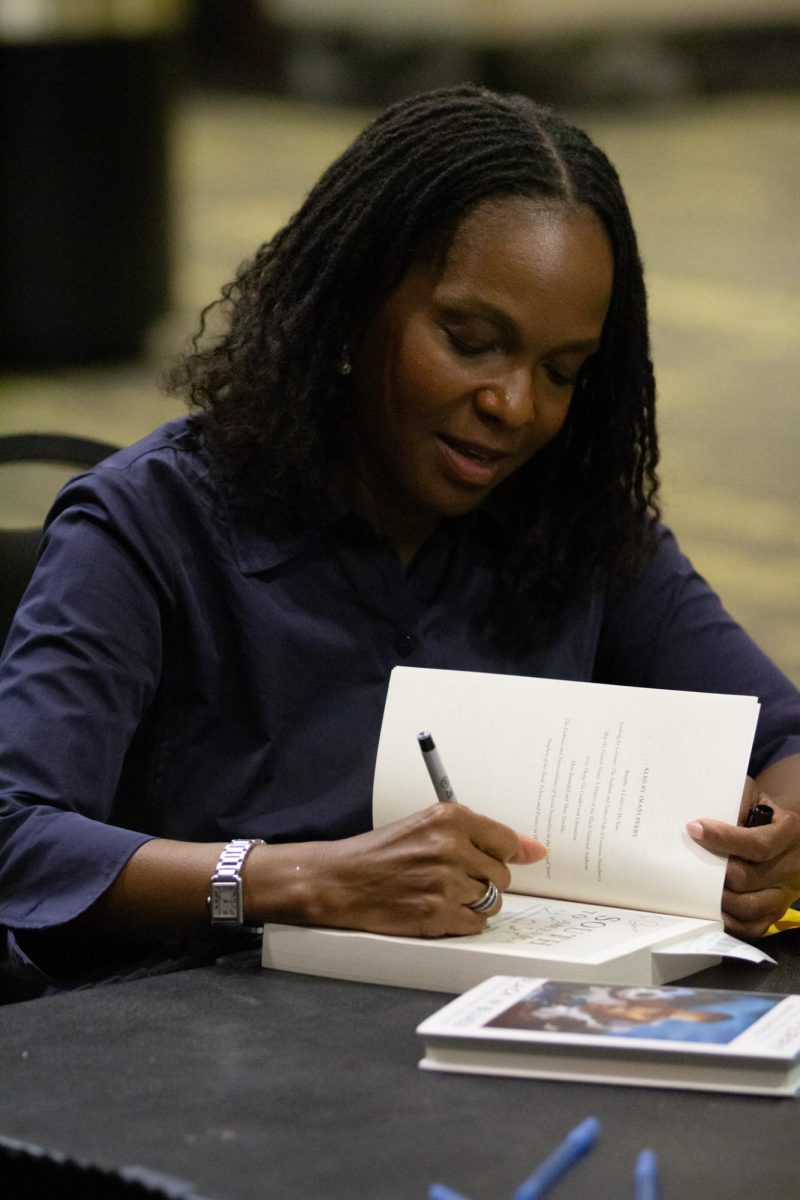
April Garon/Printz
On Feb. 6 at 7 p.m. the city of Hattiesburg welcomed former U.S. Secretary of Defense and Director of the CIA Robert Gates as he spoke about various political topics, as well as his book, “Duty: Memoirs of a Secretary at War.”
The event drew crowds from across the state, including many college students. Hunter Holder, a junior computer science major, was intrigued at the idea of listening to Gates’ speech. “I think it’s interesting seeing what the CIA has to say,” Holder said.
According to the university website, Gates was a featured speaker in The University of Southern Mississippi’s Lt. Col. John Dale Sr. Distinguished Lecture Series in International Security and Global Policy.
Previously featured speakers include former U.S. Ambassador to Saudi Arabia Wyche Fowler and former Secretary of State Madeleine Albright.
At the start of the event, Southern Miss President Rodney Bennett addressed the audience and introduced many local political figures, including Gov. Phil Bryant. Afterwards, founding Director of the Center for the Study of War and Society Andrew Wiest introduced Gates to the audience as he entered the stage.
Throughout his speech, Gates discussed sponsorships for the Center for the Study of War and Society, a few of the lessons he learned about war during his time as the secretary of defense and major themes in his book, including the wars in Iraq and Afghanistan and the battles he fought with Congress in Washington.
Gates discussed the triumphs and mistakes he made while serving as secretary of defense. While discussing his mistakes, Gates referenced lessons he learned due to his involvement with the war in Afghanistan.
“When a swift regime change and a swift success on the battlefield opens the war, if you don’t have clearly defined objectives, a clearly defined strategy, you can end up with long grinding conflicts like we ended up with in both Iraq and Afghanistan,” Gates said. He said when it is difficult to define the objectives, military action should be scarce.
Another topic Gates talked about were the similarities and differences between former President George Bush and President Barack Obama.
According to Gates, neither Bush nor Obama like to work with Congress. As a result, they are neither liked nor feared within Congress. Gates also informed audiences that both Bush and Obama each prefer socializing within small groups of friends rather than large crowds. They are both very active physically and their policies are more similar than most people realize.
“Both presidents were devoted to the troops and did all that could be expected to support them and the families of the wounded and the families of the fallen,” Gates said.
Gates also told listeners of the differences between Bush and Obama by informing them that Bush tends to be guided by his instinct, while Obama analyzes the situation before making a decision. Bush supported the troops, as well as the missions in Afghanistan and Iraq. However, Obama opposed the mission in Iraq and came to be skeptical of the mission in Afghanistan.
Gates closed by discussing why America should not be quick to use military force in dangerous situations, and also why presidents need to be more willing to inform citizens of the reasons why military action is sometimes needed.
Gates expressed his gratitude for the young men and women putting their lives at risk for America before he talked about the guilt he felt for playing a role in sending each of them to war, which led to his decision to leave the government.
“While the wounded troops I visited in hospitals put on a brave front for me, in my mind’s eye, I could see them wide awake, alone in the hours before dawn confronting the pain, the broken dreams and their shattered lives,” Gates said.
He said because of the sacrifices made by the wounded and fallen soldiers and their families, he dedicated his book to them.




























